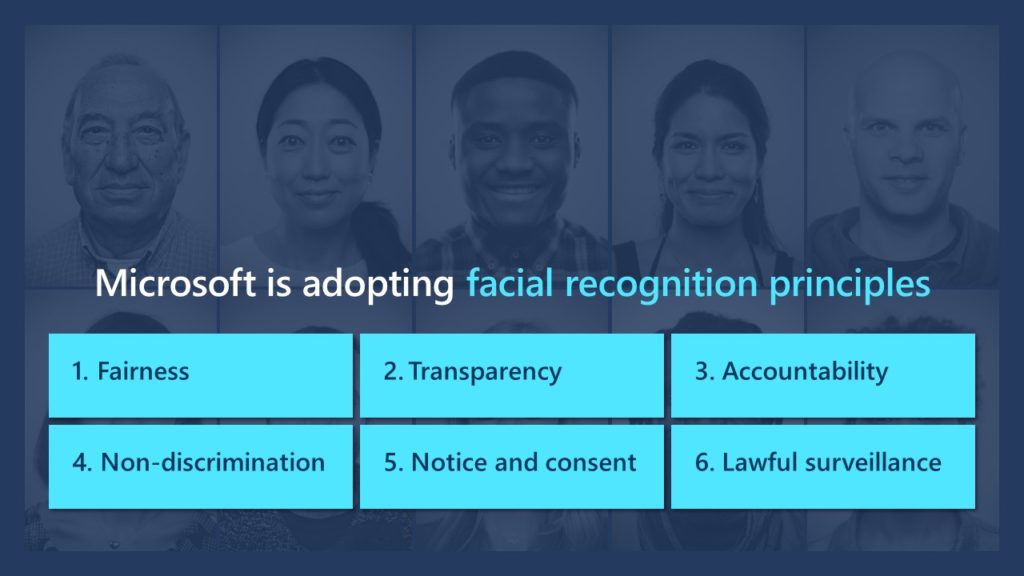Recently, Microsoft President Brad Smith called for “governments in 2019 to start adopting laws to regulate” facial recognition. He discussed this issue as well at an event at the Brookings Institution in Washington, DC.
In his blog, Smith noted that facial recognition, “brings important and even exciting societal benefits but also the potential for abuse.” When misused, facial recognition can increase the risk of discrimination. There are also concerns that facial recognition can intrude on privacy and erode democratic freedoms.
In response to the challenges posed by facial recognition, governments can help provide protections and build trust by establishing baseline rules for all developers and users of these emerging technologies.
Principles and Recommendations
Following discussions with employees, customers, public officials, academics, and various organizations, Microsoft is adopting six key principles to guide its approach to facial recognition technology.

A recently published white paper, “Six Principles for Developing and Deploying Facial Recognition Technology,” provides further detail. In the coming months, the company will be working to put these principles into action through a range of workplace policies and procedures.
Microsoft is also recommending that new laws regulating facial recognition contain key provisions that:
- Require transparency;
- Require third-party testing;
- Ensure meaningful human review;
- Prevent discrimination;
- Mandate notice to consumers;
- Allow for consumer consent;
- Limit government surveillance.
The Road Ahead
The development of facial recognition technology, along with artificial intelligence, is moving forward fast, with applications already reaching the marketplace. As Brad Smith put it, “The facial recognition genie, so to speak, is just emerging from the bottle.”
In 2019, Congress will likely consider what legal safeguards should be put in place for facial recognition technology that will foster innovation, protect privacy, and prevent discrimination. Voices for Innovation will help our community follow the debate—and encourage you to share your views and perspective.

